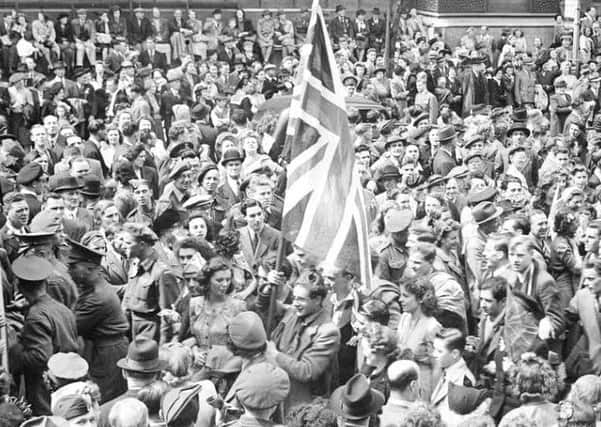VE Day: Remembering the day the war came to an end


In Lancaster, jubilant residents took to the streets with joy.
They included Margaret Baldwin, then 26 and now 99 and still living in the city.
Advertisement
Hide AdAdvertisement
Hide AdAt the time of the second world war, her mum and dad Lily and William Rose ran the Lancaster County Club on Church Street.
She told the Guardian: “I remember going up to Dalton Square and everybody was dancing and singing because the war had ended.”
To commmemorate this special day, 70 years on, the Lancaster branch of the Royal British Legion is holding a special ceremony VE Day (Victory in Europe Day) in the memorial gardens at Lancaster Town Hall at 11am.
Meanwhile union flags will be flying from both Lancaster and Morecambe town halls.
Advertisement
Hide AdAdvertisement
Hide AdLancaster Castle will also mark the 70th anniversary of VE Day.
A specially commissioned v-shaped beacon will be placed on the rooftop of the John of Gaunt Gate and fired as part of a nationwide chain of 139 beacons up and down the country at 21.32 precisely.
Following Hitler’s suicide on 30 April 1945, Germany surrendered unconditionally to allied forces at 2.41pm on May 7 1945.
Active operations by the German forces ceased at 11.01pm on May 8.
Advertisement
Hide AdAdvertisement
Hide AdAt 3.00pm on May 8, British Prime Minister Winston Churchill broadcast to the nation, declaring the war to be over.
The Second World War lasted 6 years and 1 day in total, from 1 September 1939 – 2 September 1945.
The Second World War in Europe saw approximately 382,700 British service personnel and 67,100 civilians killed.
Effects of the war remained in Britain as rationing continued until July 1954 with bacon and meat being the last to go.
Advertisement
Hide AdAdvertisement
Hide AdAfter the war, Germany was divided into 4 zones: British, French, American (western zone) and Russian.
British and Commonwealth Armed Forces continued fighting in Burma, Singapore and Thailand for a further three years until Japan’s surrender.